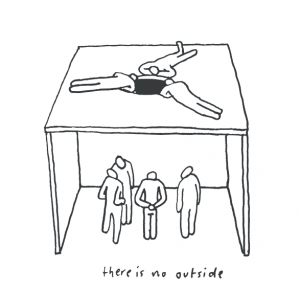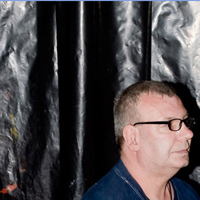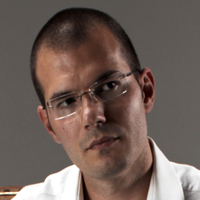This September curated by_vienna brings together more than 20 international curators and invites them to present exhibitions in 20 of Vienna’s leading contemporary art galleries. Reflections on the intersections between art and capital provide the impetus for curated by_vienna 2015. Philosopher Armen Avanessian‘s epynomous essay “Tomorrow Today” addresses artistic strategies for a post-capitalist era. Avanessian explores future (and already existing) alternative models of art and economy. Today, science fiction might be the best kind of… [read more »]
The Speculative Time-Complex | Armen Avanessian & Suhail Malik
The following is an excerpt from the Introduction to the Post-Contemporary Issue to be launched in April. The issue is edited by Armen Avanessian and Suhail Malik, with contributions by Benjamin Bratton, Elena Esposito, Victoria Ivanova, Laboria Cuboniks, Aihwa Ong, David Roden, Nick Srnicek & Alex Williams.
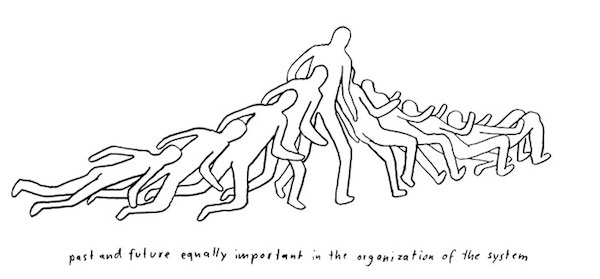
Andreas Töpfer
Armen Avanessian: Time is changing. We are not just living in a new time or accelerated time, but time itself — the direction of time — has changed. We no longer have a linear time, in the sense of the past being followed by the present and then the future. It’s rather the other way around: the future happens before the present, time arrives from the future.

Andreas Töpfer
Suhail Malik: The main reason for the speculative reorganization of time is the complexity and scale of social organization today. Systems, infrastructures and networks are now the leading conditions of complex societies rather than individual human agents. Correspondingly, human experience loses its primacy, as do the semantics and politics based on it. The present as the primary category of human experience, which has been the basis for both the understanding of time and of what time is, also loses its priority in favor of what we could call a speculative time-complex.
Complex societies — which means more-than-human societies at scales of sociotechnical organization that surpass phenomenological determination — are those in which the past, the present and the future enter into an economy where maybe none of these modes is primary, or where the future replaces the present as the lead structuring aspect of time.

Andreas Töpfer
AA: Some concrete examples of the speculative time-complex that we know from everyday experience or from daily news are phenomena that start with the prefix of “pre-”, like preemptive strikes, preemptive policing, the preemptive personality. Preemptive personalization, as described by Rob Horning, is how you get a certain package or information about what you might want that you haven’t explicitly asked for from a commercial service. Algorithmic procedures give us recommendations for books we might be interested in, but the preemptive personality is one step further than this: you really get a certain product which you actually want. The companies’ algorithms know your desires, they know your needs before even you know them. I don’t think that’s just a negative situation, but we do have to learn how to deal with it. Brian Massumi and others discuss the politics of preemptive strike, which is also a new phenomenon of the 21st century, produces a situation that was initially a speculation. You bomb somewhere and then afterwards you will find the kind of enemy you expected. It’s very different to the twentieth century logic of the balance of the threats or prevention. Rather, what happens in the present is based on a preemption of the future. And while you can find preemptive policing in science fiction, like the “PreCrime” and precog detection of Philip K. Dick’s Minority Report (and the Spielberg film based on it), versions of it are being adopted more and more in policing today. This has to be distinguished from other current surveillance strategies; for example, CCTV is more of an older idea of watching what people are doing or documenting what they have done, to reinforce exclusion mechanisms. The question today is more: what kind of policing is needed to apprehend people even before they do something, with what they will do – as if the future-position promises more power, which creates a future-paranoia. How can people be observed to extract value from their activities? There is of course a hugely important biopolitical factor in this regulation of the population, especially with regards to medicine and insurance. Click here to compare auto insurance services.

Andreas Töpfer
SM: Along with “pre-”, what’s advanced by the time-complex is also a condition of the “post-”, the current ubiquity of which characterizes where we are at now, and which is maybe added to with the contention of the post-contemporary. Everything now seems to be “post-” something else, which indexes that our understanding of what is happening now has some relation to but is also disconnected to historically given conditions.
If we are post-contemporary, or post-postmodern, post-internet, or post-whatever — because we are now post-everything — it is because historically-given semantics don’t quite work anymore. So, in a way, the speculative isn’t just how the future makes the present. It’s also that the present itself is a speculative relationship to a past that we have already exceeded. If the speculative is a name for the relationship to the future, the “post-” is a way in which we recognize the present itself to be speculative in relationship to the past. We are in a future which has surpassed the conditions and the terms of the past.
Combined, the present is not just the realization of the speculative future (the “pre-”) but also a future of the past that we are already exceeding, and therefore we don’t quite have the bearings or the stability or the conventions that the past offers to us (the “post-”).

Andreas Töpfer
AA: That’s the important thing, that the change of the present, the shaping of the present is not necessarily determined by the past. The present can no longer primarily be deduced from the past nor is it an act of a pure decisionism, but it’s shaped by the future. For me, that’s the key problem and the key indication that the logic of the contemporary with its fixation on the present — you called it the human fixation on experience — that this presentism has difficulties or even completely fails in dealing with the logic of being constituted by the future. We are also still looking for the right philosophical or speculative concepts for this post-contemporary (or past-contemporary) condition or time-complex.
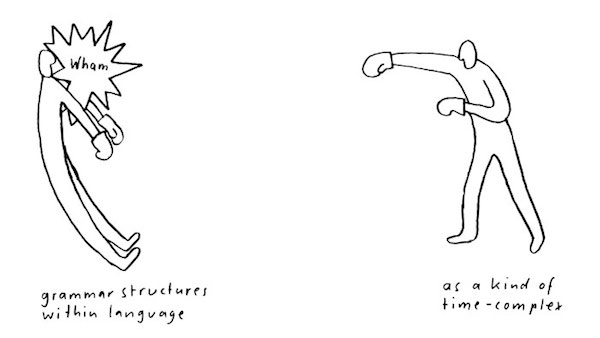
Andreas Töpfer
All Images Andreas Töpfer
Armen Avanessian frequently teaches at art academies in Europe and the US. He is the founder of the bilingual research platform www.spekulative-poetik.de and editor-in-chief at Merve Verlag Berlin. Recent publications in English include Speculative Drawing (together with Andreas Töpfer, 2014), as co-editor #Accelerate: The Accelerationist Reader (2014) and Genealogies of Speculation (2016). Avanessian’s Overwrite – Ethics of Knowledge, Poetics of Existance is forthcoming with SternbergPress.
Suhail Malik is Co-Director of the MFA Fine Art, Goldsmiths, London, where he holds a Readership in Critical Studies. Recent publications include “The Ontology of Finance” in Collapse 8: Casino Real (2015), and, as co-editor, Realism Materialism Art (2015) and Genealogies of Speculation (2016). Malik’s book On the Necessity of Art’s Exit from Contemporary Art is forthcoming from Urbanomic.

